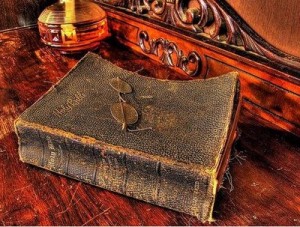 Third Sunday in Ordinary Time, Cycle C
Third Sunday in Ordinary Time, Cycle C
There is a myth that we must lay to rest, once and for all — the myth that Protestants are all about the Bible, while Catholics are all about the Sacraments. While I can’t speak for my Protestant brethren, I can say this with certainty: the Catholic Church has never tolerated any such “either/or” thinking. Both Scripture and Sacraments are precious gifts from the Lord, gifts we desperately need.
“Ignorance of Scripture is ignorance of Christ,” insisted St. Jerome, a father and doctor of the Catholic Church from the 5th century. Because of this, every liturgical service of the Catholic Church is full of Scripture. Take Sunday Mass, for instance. First there are significant chunks of Scripture read aloud, just as we see in Nehemiah 8 or in Luke 4 when Jesus serves as lector at the synagogue of Capernaum. But don’t forget the prayers and acclamations that are full of Scripture like the Sanctus (a combo of Isaiah 6 and Psalm 118:26), the Our Father (Mat 6:9), and the Gloria (Luke 2:14). Ironically, many “Bible churches” that accuse Catholics of being non-scriptural don’t actually read any Scripture aloud in their Sunday service at all!
So is hearing Scripture on Sunday enough? Not by a long-shot. Scripture, says the Second Vatican Council, is “food for the soul” (Dei Verbum 21). Who eats just once a week? To survive and thrive, you need daily nourishment. You can have a steady diet of Scripture by attending Mass daily, participating in the liturgy of the hours, or reading Scripture in daily prayer. Actually, all three make an unbeatable combination.
Frequently, though, when Catholics start reading the bible, they quickly run into trouble–usually in the first chapters of Leviticus! Yes, sometimes it is hard to know where to begin, to fit it all together, and to interpret correctly some rather obscure passages, words, and names. My father, who first attacked the Bible at age 63, discovered the book of Malachi. Thinking the name was pronounced “ma-LA-chee”, he rejoiced that there was an Italian among the prophets.
There are great Catholic bible studies on books, tapes, videos, and the web (see www.dritaly.com for suggestions and links). Some are book-by-book commentaries. Others are big-picture overviews of salvation history, so that you can fit each book, character, and theme into the overall story of God’s dealings with his people. Most are conveniently designed so that busy people with no background in the Bible can learn a lot without a huge time commitment.
Many of us spend 16 or more years of our life preparing for our secular career, then take continuing ed courses on nights and weekends. In contrast, how much have we invested in our education in the Word of God, essential for our heavenly career?
The study of the Bible is for one purpose, however. So that, praying with Scripture, we may be better able to hear what God is saying to us here and now. The writers of Sacred Scripture were inspired by the Holy Spirit. But it is equally true that the Scriptures themselves are inspired. The Holy Spirit has been “breathed into them” and resides within their words as in a temple. When we approach the Scriptures prayerfully, aided by the same Spirit who dwells in them, reading Scripture becomes an experience of being filled and empowered by God’s Spirit, and we are changed.
Sometimes the Words of Scripture are encouraging. Like when this Sunday’s second reading (1 Corinthians 12) tells us that no matter how insignificant we may feel, we each have an essential role to play as members of the Body of Christ. But other times Scripture holds a mirror up to our face and we don’t like what we see. In Sunday’s first reading, Nehemiah 8, the people wept at the reading of the word, because it made them realize their sin. The Word is truth, and sometime the truth is painful. But so is antiseptic on a wound. Scripture challenges us only to heal us and call us to growth. No pain, no gain.



